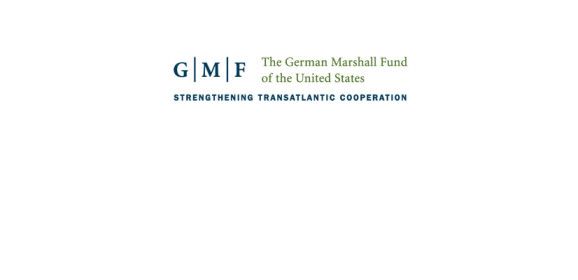Section: The German Marshall Fund of the United States (USA)
President Trump’s Second Chance in Europe
Transatlantic TakeWASHINGTON — President Trump’s visits this week to Poland and the G20 in Germany offer a chance to reassure European allies who are upset about his decision to withdraw from the Paris climate agreement and a shaky presidential performance in Brussels last month. That visit rattled some governments because of the...
NATO Cybersecurity: A Roadmap to Resilience
Today the digitalization of crisis and conflict is a fact. Hacks, malware, and fake news are increasingly taking the place of planes, bombs, and missiles. Cyberspace empowers adversaries from across the globe to challenge our security with a mouse-click. Worldwide criminal cyber-attacks such as the WannaCry ransomware, the aggressive use of...
The Case for an American Macron
Editor’s Note: This blog is part of an ongoing series of contributions from participants in The German Marshall Fund’s flagship leadership development program, The Marshall Memorial Fellowship (MMF). With a steady gait Emmanuel Macron took his victory lap through the Louvre esplanade, marching to the tune of Beethoven’s Ode to...
Will Europe’s defense momentum lead to anything?
Photo Credit: Studio 37 / Shutterstock.com, Wlad74 / Shutterstock.com Summary According to Federica Mogherini, more has happened in ten months than in ten years for European defense. The cultural change in Brussels is indeed undeniable, as several concrete instruments have been recently delivered to create an incentive for member states to...
Three Questions with Claudia Major
Editor’s Note: The German Marshall Fund of the United States (GMF) and The Foundation for Baltic and East European Studies hosted an event in Stockholm, Sweden May 16–17, 2017. This was the second edition of a long-term project that serves as a platform for high-level European and American security experts, strategic thinkers, senior...
NATO’s Eastern Flank Needs NATO–EU Cooperation, Not Competition
Transatlantic TakeOn Friday Romanian President Klaus Johannis met President Trump in Washington, DC. Romania is not what many call “core Europe,” and is often perceived as less important than the European heavyweights. Many agree that Romania’s commitment to spending 2 percent of GDP on defense is what rendered a presidential meeting so...
The Counter-Enlightenment and the Great Powers
Whatever the differences between European and U.S. policymakers in recent decades, there was little doubt that the two sides were operating on the basis of shared Enlightenment values, however loosely defined. Even at the peak of the rifts over the Iraq war, the very vehemence of the fights gave them the quality of a vicious family feud....
Farewell to the Transatlantic Academy
Dear friends, After nine very successful fellowship years, the Transatlantic Academy is formally closing on June 1, 2017. It held its final conference on May 23, reuniting its former fellows and the Academy’s partners. The German Ambassador to the United States, the Honorable Peter Wittig, hosted a reception at the conclusion of the...
Saying Farewell to the Transatlantic Academy
Last week marked the closing conference of the Transatlantic Academy. For the last nine years, the Transatlantic Academy has brought together scholars and policy experts to explore different dimensions of the transatlantic relationship. For the final year, we focused on the relationship between Germany and the United States. The launch of the...
France Could be the Gateway Between the U.S. and Europe
Alexandra de Hoop Scheffer gave an interview for Les Echos on the main stakes of the May 25th NATO meeting. She discussed the role of the French president Macron in NATO saying that his priority is to preserve and reinforce the US-French special relationship in terms of defense cooperation. France’s military leadership in fighting terrorism...



